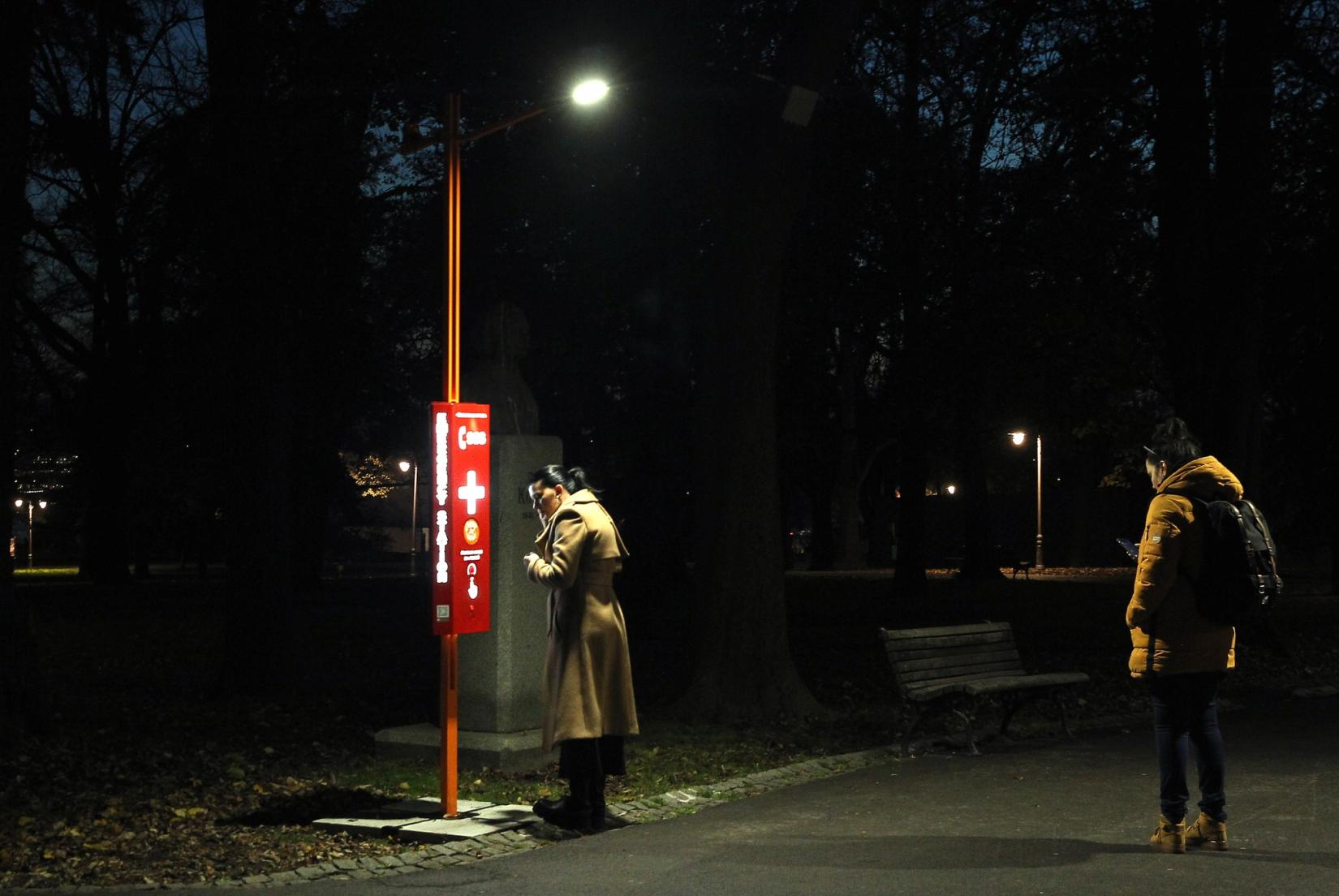"Safe everywhere" for 16 days of activism against gender-based violence
25 November 2022
Under the name "Safe everywhere", UN Women in Serbia and its partners marked this year's 16 days campaign with an immersive exhibition that transformed a part of Kalemegdan park in Belgrade to make it safe for all women and girls.
Public spaces, as a place for meeting, socializing, exchanging ideas and events, are designed in accordance with the needs of the "active man", even though today women are also active participants in public life. This affects the fact that many women do not feel safe in their city, and they limit their activities in order to reduce the risk of endangering their safety. The violence that women face when they go out on the street is different - from staring, stalking and robbery to physical and sexual assault.

In order to address this issue, the Coordination Body for Gender Equality of the Government of the Republic of Serbia, the Ministry of Labour, Employment, Veterans and Social Affairs, together with UN Women and British embassy in Belgrade joined the global 16 days campaign which is celebrated everywhere in the world from November 25 to December 10.
Under the name "Safe Everywhere", this year's campaign was conceived in the form of an immersive exhibition at Kalemegdan, where all passers-by could see and experience how a part of public space should look like if it were designed for women. Namely, part of the central path on Kalemegdan was reconstructed and transformed so that all women and girls feel safe.
Opening the exhibition on 25 November, UN Women director in Serbia, Milana Rikanovic, said that every fourth woman in Zemun carries pepper spray, just in case, while every sixth woman in Pancevo does not go out alone at night. "As many as 71 percent of women experienced some form of violence in public space - from whistling, unwanted touching, to the fact that 9 percent of women experienced rape or attempted rape," Rikanovic pointed out adding that the exhibition was created after a so-called safety walks were conducted in five cities throughout Serbia.
The Minister for Family Care and Demography, Darija Kisic, said that throughout history, women were exposed to various types of violence that were not talked about, and that is why it is important to stop this practice. "On this day, we must send a message that every woman must resist violence, that she must not be silent, that she knows that she has someone to turn to," said Minister Kisic.
Assistant Minister for Labour, Employment, Veterans and Social Affairs Biljana Zekavica said that all relevant actors should cooperate closely to eradicate violence against women and improve the regulatory framework.
The Chargé d'Affaires of the Embassy of the United Kingdom in Serbia, Dominic Otway, said that their diplomatic mission has been actively involved in raising awareness about the problem of gender-based violence for the past year. "Unfortunately, this problem is a global phenomenon, and we have had terrible cases in the UK. So we focused on how to make the streets safer, how to improve safety in the online world. "We have earmarked funds to improve safety in public transport, as well as to improve public lighting," says Otway.
One in three women worldwide has experienced physical or sexual violence in her lifetime, and we repeat this staggering number so often that it has become a commonly recognized but abstract number. We forget the human tragedies behind it, said the deputy head of the Delegation of the European Union in Serbia, Plamena Halacheva. "We forget to talk about our mothers, sisters and daughters, about women like me or you. We forget that the fight for women's rights is a fight for everyone's rights," stressed Halacheva.



